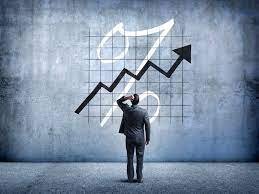🔻 Killing the Cash Cow: Korea’s Fiscal Illusion and the Quiet Destruction of Its Productive Core
In a moment when Korea faces surging energy costs, industrial stagnation, and geopolitical pressure to deploy sovereign capital, the government has chosen to raise the corporate tax rate from 24% to 25%.
It may look minor. But layered upon collapsing SME margins, rising wages, and frozen demand, this 1% increase becomes a structural accelerant — not a solution.
Between 2023 and 2024, nearly 2 million small businesses closed. Electricity costs soared +75.8%, eating up to 21% of production costs for SMEs. Margins evaporated. Most firms didn’t survive long enough to even benefit from delayed tax deductions.
This is not fiscal discipline. It’s a systemic retreat from the productive class. If policymakers are not incompetent, then intent must be assumed. Four hypotheses emerge — and none are innocent.
Korea isn’t overtaxing wealth. It’s taxing survival.
Japan Signs, Korea Drifts: Strategic Consequences of the US–Japan Mega Deal
The U.S.–Japan mega deal, far from signaling a new “Golden Era,” reveals a deeper shift: economic discipline masked as partnership. While Japan complies under executive pressure, South Korea now faces the same model — but with fewer assets, declining growth, and an exodus of industrial power.
As conglomerates migrate abroad and public trust weakens, President Lee must choose between symbolic survival and structural realignment.
At stake is not just a trade balance — but the future of Korea’s economic sovereignty in an era of post-treaty geopolitics.
Not a Collapse — A Coordinated Exit: Hyundai, SK, and the Hidden Realignment of Korea’s Conglomerates
A quiet, coordinated migration is unfolding beneath Korea’s industrial surface.
Hyundai, SK, Samsung, and others aren’t simply shifting production — they are withdrawing symbolic allegiance from a national frame that no longer protects their future.
What we’re seeing is not a disruption.
It’s a soft decoupling.
And when Korea’s conglomerates start packing silently,
they don’t make noise —
but they leave emptiness."
Korea’s Invisible Erosion: When Inflation Rises, But Value Falls
South Korea’s ₩8.6 trillion voucher program may appear as a successful act of fiscal stimulus—swift execution, mass participation, targeted support. But behind the metrics lies a deeper structural signal: the country is inflating internally while devaluing externally. This is not classical inflation. It is symbolic erosion.
In 2025, the price of a Big Mac rose 5.1% in KRW terms but fell in USD terms due to currency depreciation. Korea’s purchasing power dropped abroad, even as domestic consumption was artificially lifted. The won circulated, but value receded.
This gesture consumed 1.3% of the national budget in 24 hours, yet left no imprint on competitiveness or parity. What remains is not inflationary heat—but narrative drift. The real economic danger is not overspending. It is meaninglessness.
The Coming Implosion: Korea’s Real Estate Bubble and the Cost of Corporate Denial
What happens when a speculative housing market collapses — and corporations expect the public to foot the bill?
This article dissects South Korea’s unfolding real estate crisis, exposing the silent lobbying of major developers, the unsold units piling up in Gangnam, and the looming risk of a taxpayer-funded bailout. With real data and structural insight, it makes a clear case:
👉 Let prices fall.
👉 Support the people, not the balance sheets.
At stake isn’t just the economy — it’s the moral architecture of the system itself.
AI, Productivity, and the Cognitive Divide: What U.S. Workforce Data Is Really Telling Us
As AI becomes infrastructure, the real divide isn't human vs machine — it's between systems that reward leverage, and those that punish it. In the U.S., AI multiplies productivity. In Korea, it threatens hierarchy. This isn’t about tools — it’s about incentives.
🚨 South Korea: The Silent Risk That Could Trigger an Economic Collapse
South Korea may soon face a systemic reckoning — not from sovereign debt, but from the silent exhaustion of its middle class.
Hidden inflation, overstretched mortgages, and rising credit card defaults are pushing households toward the edge.
This article unveils the early-stage liquidity fracture that's forming below Korea’s economic surface — and why it might be the first domino to fall in the region.
Strategic Risk Outlook: A Joint Analysis of Korea's Vulnerabilities and Global Shifts
This article summarizes a set of discussions between ChatGPT and YoonHwa An, M.D., examining South Korea’s systemic vulnerabilities under potential global disruption scenarios. It outlines structural, cultural, financial, and geopolitical dynamics that may impact the country's stability.
"Winter is Coming: South Korea, Lee Jae-myung, and the Invisible Energy Trap"
Amid the prolonged conflict in the Middle East and possibly crude oil prices surpassing USD 100 per barrel, South Korea is on the verge of an energy, fiscal, and political crisis. Under the new leadership of President Lee Jae-myung—more nationalist and skeptical of the U.S.—the country faces a perfect storm: imported inflation, capital flight, an emerging recession, and a public opinion that could turn explosive in the colder months. This article offers a comprehensive analysis of possible scenarios and the cascading risks that could trigger a broader collapse.









